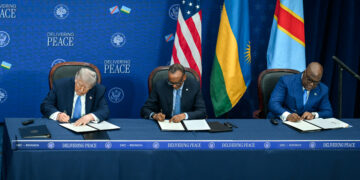A recent UK government assessment confirms that major cuts to foreign aid will significantly impact health and education projects in several African nations.
The Foreign, Commonwealth and Development Office (FCDO) has outlined the effects of reducing aid from 0.5% to 0.3% of national income, a shift designed to free up resources for increased defense spending. The change follows a detailed audit that prioritized multilateral funding over direct bilateral support.
As a result, UK-funded initiatives targeting sanitation, maternal health, and education in countries such as the Democratic Republic of the Congo, Ethiopia, Mozambique, and Zimbabwe will face significant reductions.
Among the most immediate consequences is that a girls’ education project in Kasai, DRC, serving around 170,000 children, will be terminated earlier than planned in 2025–2026. Similar cuts are slated for programs in Sierra Leone, Nigeria, and Ethiopia.
The review also noted that the Ending Preventable Deaths program will be scaled back, limiting its reach in 11 countries. The FCDO warned these cuts may increase disease, mortality rates, and overall health risks, particularly for women, children, and people with disabilities.
The government maintains that the cuts are necessary to enhance the effectiveness of aid and achieve new security objectives. However, critics argue the most vulnerable populations will pay the highest price.










